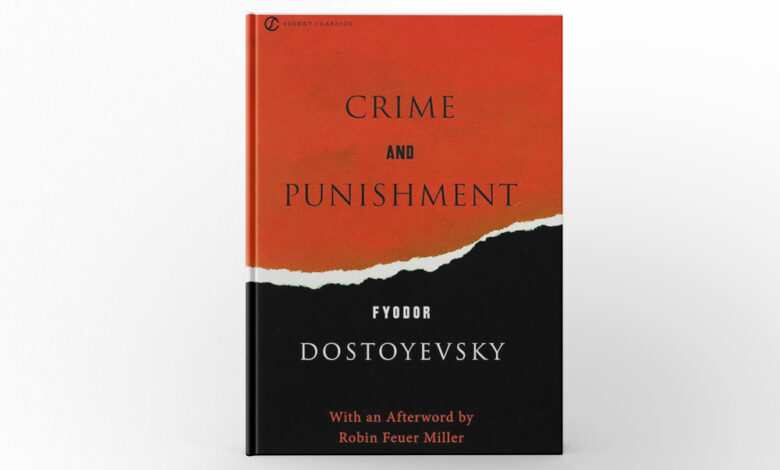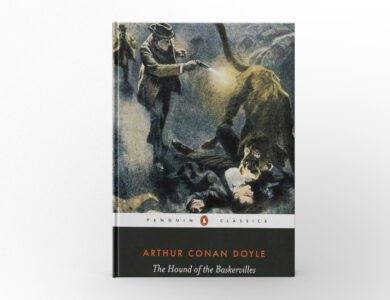Crime and Punishment by Fyodor Dostoevsky
The Psychological Depths of Guilt and Redemption: A Review of “Crime and Punishment” by Fyodor Dostoevsky

“Crime and Punishment” by Fyodor Dostoevsky is a profound exploration of morality, guilt, and redemption. This classic novel delves into the mind of its protagonist, Raskolnikov, as he grapples with the consequences of his actions.
Author’s Background
Fyodor Dostoevsky was a Russian novelist, short story writer, essayist, and journalist. Born in Moscow in 1821, Dostoevsky is considered one of the greatest literary figures of all time. His works often explore complex psychological and philosophical themes, reflecting his own tumultuous life experiences, including his imprisonment in Siberia and struggles with epilepsy and financial hardship. Dostoevsky’s other notable works include “The Brothers Karamazov,” “The Idiot,” and “Notes from Underground.”
In Depth Summary
“Crime and Punishment” is set in St. Petersburg, Russia, and follows the story of Rodion Raskolnikov, a former student living in poverty. The novel begins with Raskolnikov contemplating a plan to murder Alyona Ivanovna, a pawnbroker, whom he perceives as a parasite on society. He rationalizes that killing her would be justified if it means he can use her money to do good deeds.
Raskolnikov eventually carries out the murder, but the act does not go as planned. He also kills Alyona’s half-sister, Lizaveta, who unexpectedly walks in on the crime. This double murder sets off a psychological and moral crisis for Raskolnikov. He becomes consumed by guilt and paranoia, leading to erratic behavior and a deteriorating mental state.
Throughout the novel, Raskolnikov interacts with various characters who influence his journey. These include his devoted sister, Dunya, and her suitor, Razumikhin, who represents the possibility of redemption and moral integrity. Another key figure is Sonia Marmeladov, a young woman forced into prostitution to support her family. Sonia’s unwavering faith and compassion become a source of solace and moral guidance for Raskolnikov.
The novel’s climax occurs when Raskolnikov confesses his crime to Sonia and later to the police. His confession is a pivotal moment of catharsis, leading to his arrest and eventual imprisonment in Siberia. In the epilogue, Raskolnikov begins to find spiritual redemption through Sonia’s love and support, suggesting a glimmer of hope for his future.
Themes and Insights
“Crime and Punishment” addresses several profound themes. One of the central themes is the psychological torment of guilt. Dostoevsky masterfully portrays Raskolnikov’s inner turmoil and the devastating effects of his crime on his psyche. The novel explores the idea that true punishment comes not from external forces but from within.
Another significant theme is the moral ambiguity of justice. Raskolnikov’s justification for the murder raises questions about the nature of morality and the limits of human rationalization. Dostoevsky challenges readers to consider the complexities of right and wrong and the consequences of taking justice into one’s own hands.
The novel also delves into themes of redemption and the possibility of spiritual renewal. Through Raskolnikov’s interactions with Sonia and his eventual confession, Dostoevsky suggests that redemption is possible even for those who have committed heinous acts. The novel emphasizes the importance of compassion, faith, and human connection in the journey toward redemption.
Personal Reflections
Reading “Crime and Punishment” is an intellectually and emotionally intense experience. Dostoevsky’s intricate prose and deep psychological insights make the reader feel intimately connected to Raskolnikov’s journey. The novel prompts readers to reflect on their own moral beliefs and the nature of guilt and redemption.
Dostoevsky’s portrayal of Raskolnikov’s inner conflict is both compelling and unsettling. The novel serves as a powerful reminder of the complexities of the human psyche and the profound impact of our actions on our mental and emotional well-being.
Recommendation
“Crime and Punishment” is an essential read for anyone interested in literature, psychology, or philosophy. Dostoevsky’s insightful analysis and masterful storytelling make the book both intellectually stimulating and deeply moving. It is a timeless classic that continues to resonate with readers today.
Impact and Legacy
The impact of “Crime and Punishment” has been profound. The novel is widely regarded as one of the greatest works of literature and has influenced countless writers, philosophers, and psychologists. Dostoevsky’s exploration of the human condition and the moral complexities of crime and punishment has left an indelible mark on literary and intellectual history.
“Crime and Punishment” has also been adapted into numerous films, plays, and other media, further extending its reach and influence. The novel’s themes of guilt, redemption, and the search for meaning continue to resonate with readers and audiences worldwide, making it a landmark work in the field of literature.
Conclusion
“Crime and Punishment” is more than just a novel; it is a profound exploration of the human condition and the psychological depths of guilt and redemption. Fyodor Dostoevsky’s masterful storytelling and deep insights challenge readers to reconsider their understanding of morality, justice, and the possibility of spiritual renewal. This review of “Crime and Punishment” highlights the enduring impact of Dostoevsky’s work and the powerful lessons it imparts.





